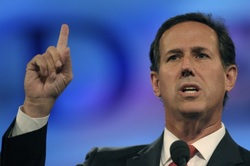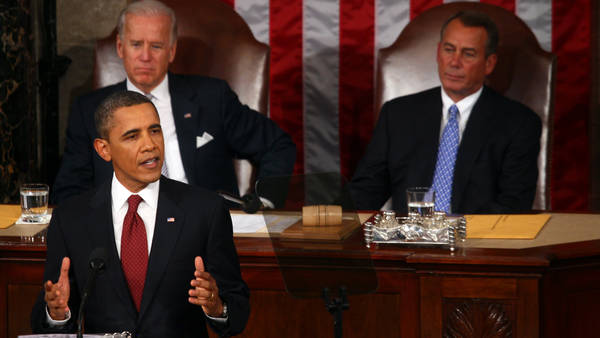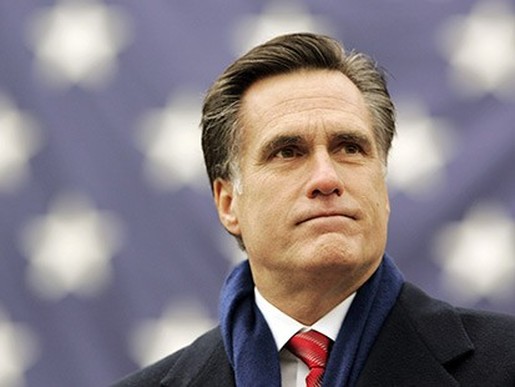Last Tuesday, April 3 was the Republican primary in Wisconsin, and Professor Lowe charged us with finding a story. Unsurprisingly, expectations on campus were low for the primary, with very little discussion or information available on campus.
Marquette College Democrats attempted to get the word out by tabling outside the library and encouraging students to vote-- no matter who they voted for. College Republicans were virtually invisible on campus the same day, despite the fact that it was a Republican primary. I investigated further, and you can read the full story here. Standing outside the Alumni Memorial Union, the voting location at Marquette, it appeared that very few students were interested in the election, and did not vote. Some of it was dues to the Voter ID Law confusion, some of it was due to apathy and some of it was due to the location of the polls. My photo journal focussed on this-- find
0 Comments
 In a surprising change in the race for the Republican candidacy, Rick Santorum won the Minnesota, Missouri and Colorado caucuses. In an unsurprising continuation of lacking coverage, Philly.com did little reporting on Tuesday night.
Most news from the elections that Philly.com did report came from the AP wire. However, Philly.com did tweet some updates. The Missouri win means virtually nothing, as it will not give Santorum any delegates. The wins in the other two states, however, means Santorum now has 70 delegates. Santorum was overjoyed during a speech to supporters in St. Joseph, Mo., saying "Conservatism is alive and well in Missouri and Minnesota!" These are the first wins for Santorum since he narrowly won the Iowa caucus, a decision made after-the-fact. Mitt Romney, the Republican front-runner, was dropped to third in Minnesota, raising questions about his campaign. While running in 2008, Romney won both Minnesota and Colorado. Undoubtedly, these wins mean for a much more intense race between the four candidates as the campaign continues. Last night, President Barak Obama delivered his third State of the Union with a confidence and vigor last seen during his 2008 campaign. It excited many of the national news sites into a stupor of live-Tweets and podcasts, yet many regional papers, including Philly.com, were less interested in covering the annual speech.
The Philadelphia news outlet covered the speech in detail the next day, with many AP stories and blogs. Yet the night of, the site was rather quiet, with rare updates and a delayed report after the fact. Other sites, like the New York Times and the Washington Post did a much better job of reporting while the speech was taking place. I found myself following their Tweets and updates more than Philly.com's, although The Huffington Post truly dominated my Twitter feed. I am impressed after watching President Obama deliver the nearly hour and a half long speech. He was incredibly charismatic, his emphasis was defiant and he played party lines to his advantage, at one point even getting a smile out of House Majority Whip Eric Cantor when he told Congress to "pass the payroll tax cut without delay." Mitt Romney has a background in business and government, a resume he believes makes him the best Republican candidate for the 2012 presidential election. Before he was governor of Massachusetts (2003-2007), he was the CEO of Bain & Company. He left Bain & Company to co-found and head Bain Capital, a highly profitable private equity investment firm. As governor, Romney eliminated a $3 billion deficit and signed into law the Massachusetts health care reform legislation, the first of its kind in the nation.
Romney unsuccessfully ran for the Republican candidacy in the 2008 election, falling short to Sen. John McCain. That election left many conservatives wary of Romney's convictions and his Mormon faith, a skepticism Romney still faces. He has swayed further right since his governorship, but the similarities between the Massachusetts health care legislation and the health care program presented by the Obama administration worry many conservatives. Romney's platform, as his website states, is that the country has "a moral responsibility not to spend more than we take in." Romney seeks to encourage economic growth on the principles of hard work, free enterprise and innovation. Romney was initially thought to have won the Iowa caucus, but due to a miscount, Rick Santorum edged him out by 34 votes. However, with eight precincts missing votes, the Republican Party has declined to announce a winner. Romney did win the New Hampshire primary. With the Republican race so close, Romney is looking past this weekend's South Carolina primary, as Newt Gingrich and Santorum battle. If the more conservative members of the GOP remain split between Gingrich and Santorum, Romney will be the Republican candidate. |


 RSS Feed
RSS Feed